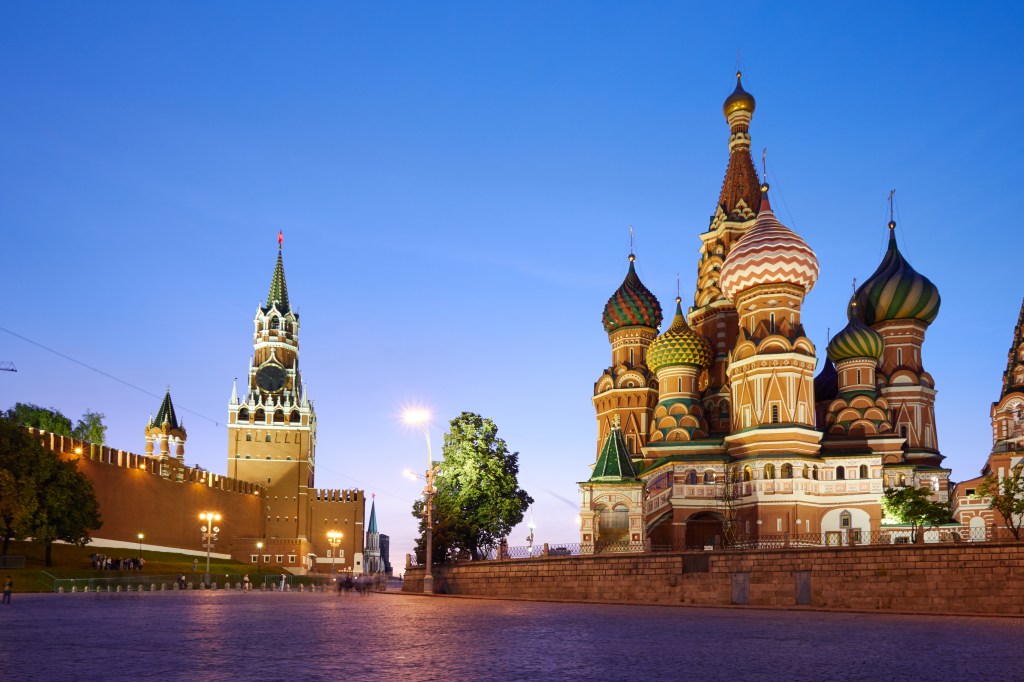The Russian government escalated its war against social media companies on Wednesday by slowing down access to Twitter in the country in order to “protect Russian citizens.”
But just like it’s done in the past, Roskomnadzor, the state’s communications regulator, appears to have botched its plan to censor a social media platform while at the same time taking down its own website offline, as well as those of the Kremlin and the Russian government, according to several experts and journalists.
Videos by VICE
Last week, the regulator warned Twitter that it could face heavy fines if it was found guilty of repeatedly failing to remove some 3,000 posts containing information about suicide, child pornography, and drugs dating back to 2017. The regulator added that if Twitter continued to ignore the takedown requests, it would block the platform completely.
But on Wednesday Roskomnadzor took matters into its own hands and took action against the social media company.
“Starting March 10, 2021, centralized response measures have been taken against Twitter to protect Russian citizens and force the internet service to comply with Russian legislation,” Roskomnadzor said in a statement on Wednesday morning, according to a translation by the Moscow Times.
The agency said it would be slowing down access to Twitter on cell phones and desktops, but according to multiple Twitter users in Russia who posted messages on Wednesday morning, the action so far has had little minimal impact. However, the Russian version of the outages tracking website Down Detector is reporting a spike in issues with Twitter in the country.
The Twitter slow down is part of an escalating stand-off between Moscow and U.S. social media platforms. The action comes just 24 hours after news emerged that Moscow is planning to sue Twitter — along with Google, Facebook, Telegram, and TikTok — for allegedly failing to delete posts it said illegally urged children to take part in anti-Kremlin protests.
However, it appears that while trying to slow down access to Twitter, Roskomnadzor may have inadvertently knocked its own website offline together with a swathe of other Russian government sites and services, including the official Russian government website and Kremlin.ru — though the latter subsequently came back online with a warning that it’s “not secure.”
At one point the Russian authorities appeared to blame the outage on a U.S. cyberattack, with Senator Andrey Klimov referring to reports this week that Washington is preparing a digital attack against Russia in response to recent moves against U.S. targets.
But then Russia’s Ministry of Digital Development laid the blame for the websites going offline on malfunctioning equipment operated by Rostelecom, a Russian telecoms provider, claiming the outage had nothing to do with the efforts to throttle Twitter.
But Russian experts believe that the effort to slow down Twitter and the sudden removal of several government websites are related.
Andrei Soldatov, an expert on the Russian government’s efforts to control cyberspace, said on Twitter Wednesday that the throttling of the social network is what caused the website outages in Russia.
Meanwhile, investigative journalist Alexey Kovalev pointed out that an almost identical incident befell Roskomnadzor in 2018 when it attempted to block Telegram. This was because Russia’s security services decided that Telegram was a tool for terrorists due to the messaging service’s strong encryption preventing them from seeing what people were saying to each other.
And Financial Times Moscow correspondent Max Seddon wrote that it “looks like Russia managed to take all the government websites offline in its attempts to slow down Twitter…Another crushing success.”
Twitter, which didn’t immediately respond to VICE News’ request for comment, is only used by around 3 percent of the Russian population. But it has become a space for hyper-politicized speech in the country, according to experts, particularly around the poisoning, and subsequent arrest and jailing of Kremlin critic Alexei Navalny.
Roskomnadzor has no power to actually block any website or service itself. In 2018, it provided a list of IP addresses of Telegram users to the internet service providers, who then implement the block.
Trying to avoid being shut down, Telegram switched its IP addresses to Google and Amazon’s cloud infrastructure. But because thousands of Russian businesses and much of Russia’s critical IT infrastructure depend on the same services when Roskomnadzor decided to block those addresses too, Telegram remained online while the websites of online businesses and services were blocked.
More
From VICE
-

Photo: Whiteland Police Department -

Photo Credit: Infamous PR -

Screenshot: Larian Studios, Reddit -

Screenshot: Sony
